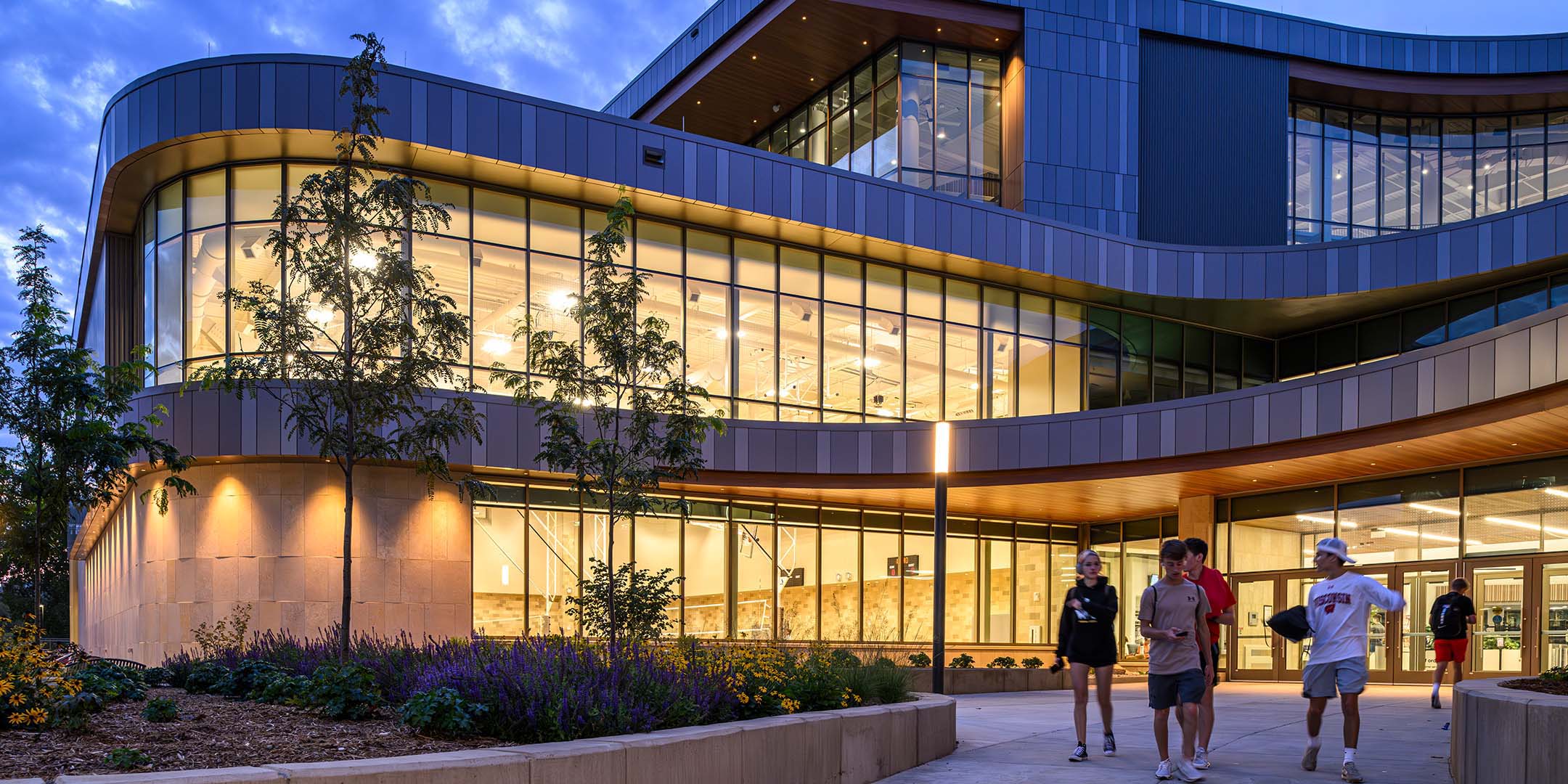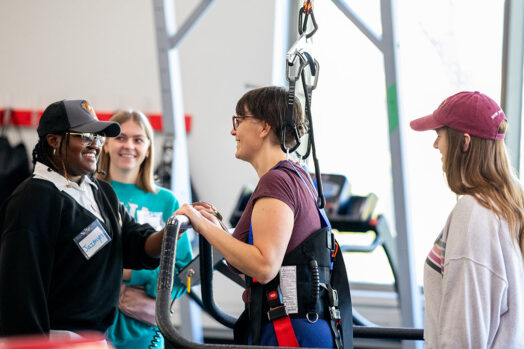
Since fall 2023, UW–Madison has been offering students and community members wellness support like never before. The new Bakke Recreation & Wellbeing Center, located on Observatory Drive near the Native effigy mounds, is an improvement on the old Natatorium. In a forward-thinking and inclusive manner, a team of UW students were invited to serve on the design committee, bringing their own viewpoints on what they thought the center should include. An emphasis on nature, wellness, and a welcoming atmosphere gives the Bakke Center a platform for health and wellness through more than physical activity alone.
“Where the facility is located is absolutely gorgeous,” says Allison Dentice ’21, one of the students who served on the design committee. “But we also focused on this because, in our own experience, nature and the outdoors really do have an impact on physical and mental health and well-being.”

Offering an array of options, the Bakke Center features cardio equipment, weightlifting, sport simulators, a 50-meter pool, a climbing wall, an ice arena, massage rooms, nutritional programs, dancing classes, and even a protein-shake station.
“We know that our students are here for academics, which can be rigorous and challenging,” says Aaron Hobson ’08, executive director of Recreation & Wellbeing at UW–Madison. “Students need amenities, resources, and outlets that can help them be successful inside the classroom by taking care of themselves outside of the classroom.”
The Bakke Center is also fully open for the UW–Madison community, creating an open and inclusive environment. All of this was made possible through the vision and philanthropic generosity of Sue and Jim ’77 Bakke whose lead gift in 2021 helped launch this transformational project.
“We believe outstanding student recreation spaces are critical to attracting the best students to the UW,” shares Sue. “We were also motivated by the community access as well as the vital work being done in the Adapted Fitness program.
In October 2023, Adapted Fitness celebrated its grand opening in the new Conway Adapted Fitness facility, which is situated inside the Bakke Center. The Adapted Fitness program is part of the School of Education’s Department of Kinesiology. It provides health and fitness sessions designed to accommodate a diverse population of community members, eliminating barriers for those living with temporary and permanent disabilities. Serving roughly 90 class participants and utilizing more than 250 UW student volunteers per year, the new home of Adapted Fitness was made possible through generous philanthropic support of Ginny ’78 and Mike ’78 Conway.
The Conways are dedicated Badgers through and through. Ginny earned her degrees in physical education and dance, and Mike majored in chemical and biological engineering. Their decision to fund the new facility developed from their desire to make things better for Badgers and Madisonians alike.
“This space will both improve the lives of participants from the area, while providing hands-on learning experiences for UW–Madison students interested in working with people with a wide range of capabilities,” the Conways say. “We felt providing specific support in this area would move the Adapted Fitness program closer to its long-term goals.”
Upgraded equipment will help participants achieve their objectives by providing an in-ground treadmill that allows those who use wheelchairs and individuals with limited mobility to work on aerobic fitness. There is also a harness track system mounted to the ceiling to provide support and help prevent falls for those working on gait and balance.
“From the spectacular views out to Lake Mendota, to the layout of an open concept classroom space within the gym, to the many accessible and inclusive features, the new Conway Adapted Fitness space far surpasses our former home in the Natatorium,” says Kecia Doyle MS’13, PhD’21, director of the Adapted Fitness program. “It’s also a teaching facility that provides hands-on learning opportunities and life-changing experiences to undergraduate and graduate students who are pursuing careers in allied health, fitness and well-being, education, public health, research, and many other fields. This place will continue to foster the strong sense of community that has existed within the Adapted Fitness program for 35 years.”
Photo by Sarah Maughan
